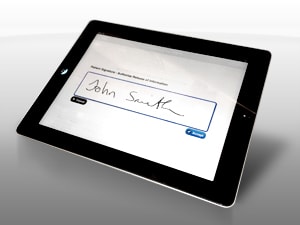
In the last decade or so, business and organizations have been trying to shift from a paper-intensive to a paper-free environment. Computers have taken the place of the pen and paper, spreadsheet programs have replaced manual spreadsheets, and emails have substituted handwritten letters.
As paper-oriented systems are being transferred online, new business opportunities have also begun to emerge. However, the road to an economy that is dominated by electronic-based transactions is not without concerns. These include identification or knowing whom you are dealing with, entitlements or the entity authorized to access the required information, and digital accountability or the manner of accountability for a person’s online commitments.
Organizations are moving away from the traditional and tedious paper-based processes and searching for new and innovative technology to enhance efficiency. Electronic signatures can significantly benefit businesses by eliminating the role of paper in the business cycle. Being able to instantly sign and seal documents and transactions digitally results in much shorter process cycle times, faster customer service, and dramatic cost savings. Electronic signatures provide improved convenience for both business and customer, while significantly decreasing application processing time.
Electronic signatures are now considered legally binding as handwritten ones, and it will not be long before it is normal to use this technology to replace written signatures. Experts claim that it is more difficult to forge a digital signature than a manually written one. A highly skilled forger can modify the contents of a document with a handwritten signature without being detected, but it won’t be the case with an electronic signature. Any change in a signed document such as signature replacement or content modification can cause the digital signature verification process to fail.
The use of electronic signatures in online businesses is not limited to specific types of industries or tech-related products and services. Companies in every field are conducting business through the Internet. E-business networking methods can be applied to any facet of an organization’s operations, including sales and marketing, production, procurement and logistics, and design and engineering. An efficient use of e-business is putting these functions together. Management in many companies remain unaware of the benefits than can be gained from the use of electronic signatures.
Digital signatures provide a solution for numerous improvements in business processes. One example is when the business-to-business or B2B sector encounters a problem with the mobility of decision makers. They should be able to initiate transactions all over the world in order for them to react promptly to extremely time-critical business transactions. Since it has been increasingly difficult to locate this group of people in the office, crucial transactions are left incomplete. Therefore, the implementation of electronic signatures would be advantageous to mobility.
Another important business goal nowadays is cost saving. Traditional transactions are managed using handwritten or pre-printed forms. The data on the forms are then manually transferred to other forms before being processed and fed into the company’s ledger. This transcription is not only costly, but prone to errors and diverts limited business resources from services to routine administration. With paperless technology, transcription won’t be necessary.